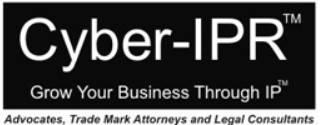Navigating Domain Name Disputes: A Comprehensive Guide
Domain names have become an integral part of the digital landscape, serving as online addresses for websites and representing brands, businesses, and individuals on the internet. However, with the increasing importance of domain names, disputes related to domain names have also become more prevalent. In this comprehensive guide, we will explore the key aspects of navigating domain name disputes, including understanding domain name disputes, preparing for disputes, resolving disputes, case studies, tips for dispute resolution, and the importance of proactive measures to protect online brand identity.
Understanding Domain Name Disputes:
Domain name disputes can arise in various forms, such as cybersquatting, trademark infringement, and disputes over ownership or use of domain names. It is crucial to understand the different types of domain name disputes and the parties involved, including domain registrants and trademark owners. Familiarizing oneself with relevant laws and regulations, such as the Uniform Domain Name Dispute Resolution Policy (UDRP) and the .IN Dispute Resolution Policy (INDRP), is also essential to navigating domain name disputes effectively.
Preparing for Domain Name Disputes:
Taking proactive measures to prevent domain name disputes is crucial. This includes choosing a strong domain name from the outset, conducting thorough research before registering a domain name to ensure it does not infringe on others’ rights, and registering domain names with multiple extensions to protect brand identity. Regular monitoring of domain name registrations and potential conflicts can also help in identifying and addressing issues before they escalate into disputes.
Resolving Domain Name Disputes:
Domain name disputes can be resolved through various methods, including the UDRP process, court litigation, negotiation, and mediation. Understanding the pros and cons of different dispute resolution methods, as well as the required documentation and evidence, is essential for presenting a strong case. Seeking legal counsel from qualified professionals specializing in domain name disputes can be invaluable in navigating the complex process of dispute resolution.
Case Studies:
Learning from real-world examples of domain name disputes can provide valuable insights into the factors that influence dispute resolutions. Analyzing past cases and their outcomes can help in understanding the legal principles, evidentiary requirements, and strategies employed in successful domain name dispute resolutions. Case studies can serve as practical examples and provide guidance for those facing similar disputes.
Tips for Domain Name Dispute Resolution:
Navigating domain name disputes can be complex and challenging. Here are some practical tips to help in the resolution process:
Seek legal counsel: Consulting with qualified legal professionals who specialize in domain name disputes can provide expert guidance and increase the chances of a successful resolution.
Maintain open communication: Keeping lines of communication open with relevant parties, including domain registrars, trademark owners, and dispute resolution providers, can facilitate a smoother resolution process and potentially lead to amicable settlements.
Explore alternative dispute resolution methods: Negotiation and mediation can be effective in resolving disputes without the need for lengthy and costly litigation. Consider exploring alternative dispute resolution methods as a viable option for resolution.
Be aware of timeframes and deadlines: Domain name dispute resolution processes have strict timeframes and deadlines. Being aware of these and ensuring timely submissions of required documents and evidence is crucial to avoid losing the opportunity to present a case.
Conclusion:
In today’s digital world, domain name disputes can pose significant challenges to businesses, individuals, and brand owners. Understanding the nuances of domain name disputes, preparing proactively, and employing effective dispute resolution strategies are essential for navigating and resolving these disputes. By following the comprehensive guide outlined above and seeking qualified legal counsel when needed, businesses and individuals can protect their online brand identity and safeguard their rights in the ever-evolving domain name landscape.
